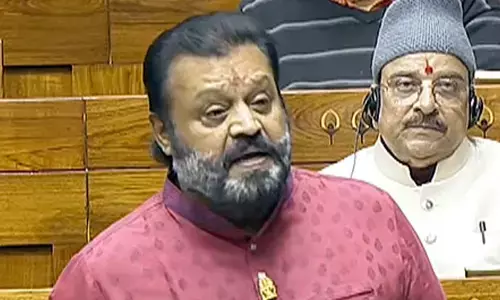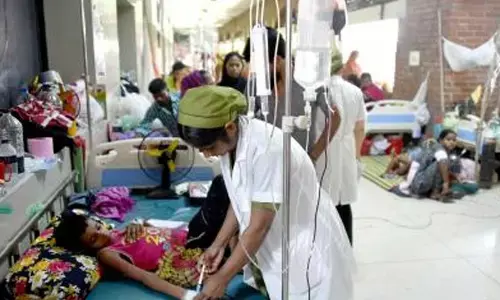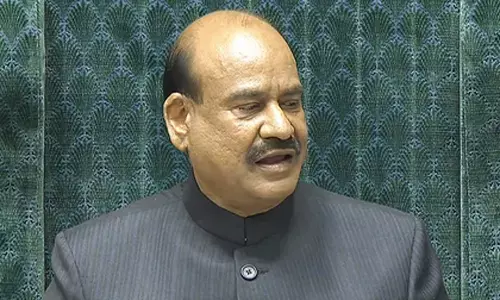Azoospermia a cause of concern among males

Azoospermia a cause of concern among males
Infertility is often associated with women, and seldom are men considered infertile.
Bengaluru: Infertility is often associated with women, and seldom are men considered infertile. Infertility affects 15 percent of couples. In 40 percent there is a problem with the male, 40 percent in the female and in 20 percent, there is a problem with both. Azoospermia affects 1 percent of all men and 15 percent of infertile men. In India, around 5 per cent of adult males are suffering from infertility.
Azoospermia, a condition where a man ejaculates semen but that doesn't contain any sperms, is becoming a cause of concern among many males. There are two types - Obstructive Azoospermia and Non-Obstructive Azoospermia. In cases of Obstructive Azoospermia, there is normal sperm production in the testis but an obstruction hampers the flow of the sperms. The blockage could be anywhere between the testis and the urethra (urine passage). Infection, injury or surgery (for hernia or hydrocele) of the genital tract may result in this condition. As a result, sperms are not seen in the ejaculated semen. Treatment options in such cases are straightforward and the blockage can be bypassed by surgery or sperms can be obtained using a fine needle directly from the testis.
Speaking about the treatment for Obstructive Azoospermia, Dr. Rajsekhar Nayak of Gunasheela Surgical and Maternity Hospital, says, "Surgical bypass is successful in only a small percentage of patients. Hence, many patients opt for obtaining sperms from the testis using methods called Percutaneous Epididymal Sperm Aspiration (PESA) and Testicular Sperm Aspiration (TESA). Here, a fine needle is used to obtain sperms directly from the testis. It is simple, painless and does not need admission."
Sperms are retrieved in almost 100% of patients. These sperms can then be used for injecting the patient's wife's eggs during a procedure called IVF –ICSI. In cases of Non-Obstructive Azoospermia, there is a problem with the production of sperms in the testis. "The exact cause is unknown in most of the cases but radiation, chemotherapy, mumps infection in childhood, hormonal deficiencies may result in this condition. Traditionally, it was thought that men with non-obstructive Azoospermia were incapable of producing any sperms. Therefore, the only option available was insemination with donor semen or adoption," says Dr.Nayak.
However, studies have now shown that even in non-obstructive Azoospermia, there are small pockets of sperm production in the testis. A new procedure known as Micro dissection Testicular Sperm Extraction (Micro – TESE) is used to retrieve sperms so that these men can have their own biologic child. Using Micro-TESE sperms can be obtained in upto 60% of these patients. The sperms obtained by either technique are used in a procedure called IVF-ICSI (test-tube baby). The pregnancy rate from this technique is similar to that achieved in IVF-ICSI using normally ejaculated sperms. Many patients have been treated this way successfully and Gunasheela Surgical and Maternity Hospital have had the first baby in the state with the Micro-TESE surgical procedure, added Dr. Nayak.
Technique
As part of the treatment, under Anaesthesia, the testis is opened. Using the operating microscope under 25X magnification dilated opaque tubules are identified. Small bits of these tubules are taken and sent to the lab to look for sperms. Utmost care is taken to not injure the blood vessels of the testis. This high precision surgery requires training and experience. The sperms retrieved are used for IVF-ICSI. Patients are discharged the following day. The risks and complications of this procedure are minimal and do not lead to any problems in the future.
Causes of Azoospermia
Blockage in the ejaculatory tubes, Injuries within the genitalia, STDs, Varicocele, and other male sexual infections, Genetic factors, Hormonal imbalances, stress, and trauma and History of surgery, especially of the male reproductive organ
















